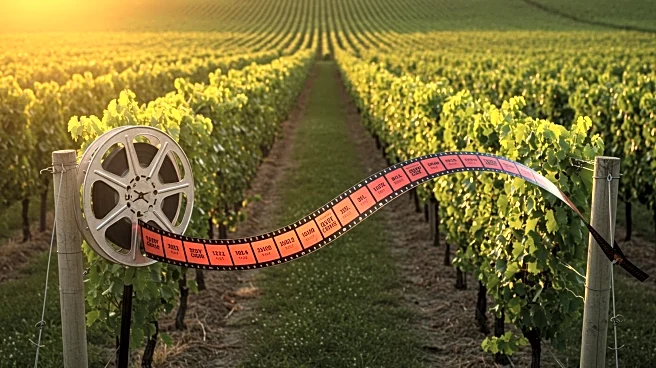What's Happening?
The Martha's Vineyard African American Film Festival (MVAAFF), founded by Stephanie Tavares-Rance and Floyd Rance, continues to thrive despite national rollbacks in diversity, equity, and inclusion (DEI) initiatives. Celebrating its 23rd year, the festival focuses on Black stories and creatives, drawing significant sponsorships from major companies like HBO Max and Netflix. The festival has become a significant cultural event, raising tourism by 40% during its week-long celebration. Despite challenges, the founders emphasize the importance of centering the festival around Black joy, creating a space for celebration and community.
Why It's Important?
The MVAAFF's success highlights the resilience and importance of cultural festivals in promoting diversity and inclusion, especially in times of national DEI rollbacks. By focusing on Black joy, the festival provides a platform for underrepresented voices in the film industry, fostering community and cultural exchange. The festival's impact on local tourism and its ability to attract major sponsors demonstrate the economic and cultural significance of such events. It serves as a model for other cultural initiatives aiming to celebrate diversity and support marginalized communities.
What's Next?
Looking ahead, the MVAAFF plans to continue its growth and impact, with programming already underway for next year's festival. The founders are also preparing for the 25th annual celebration in 2027, which promises to be a milestone event. As the festival continues to attract attention and sponsorship, it may expand its reach and influence, further solidifying its role as a key cultural event. The focus on Black joy and community partnership will likely remain central to its mission.
Beyond the Headlines
The MVAAFF's emphasis on Black joy amid DEI challenges reflects broader societal trends in the U.S., where cultural events play a crucial role in advocating for diversity and inclusion. The festival's success underscores the power of community-driven initiatives in creating spaces for celebration and resistance. It also highlights the potential for cultural festivals to drive economic growth and tourism, showcasing the intersection of culture and commerce.









